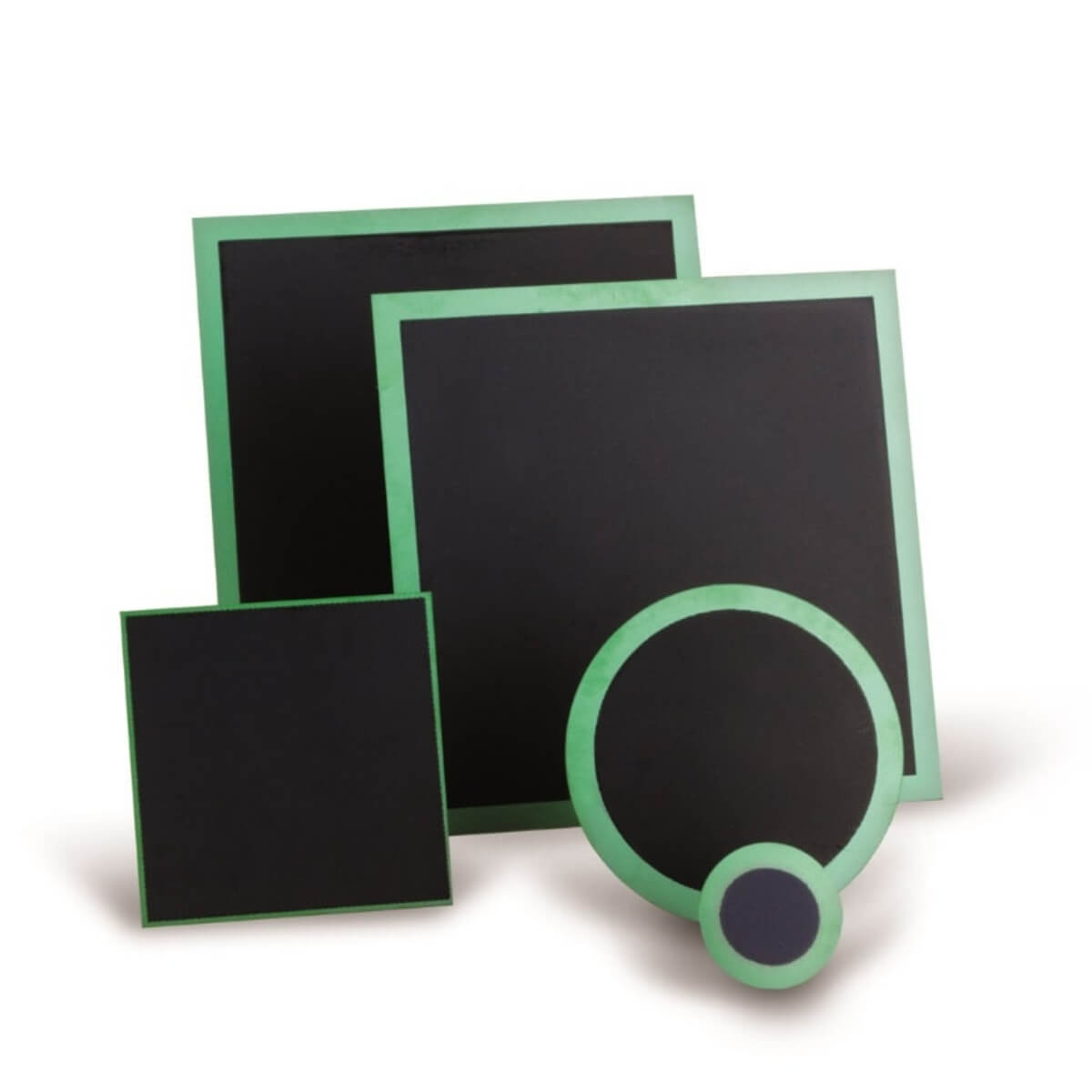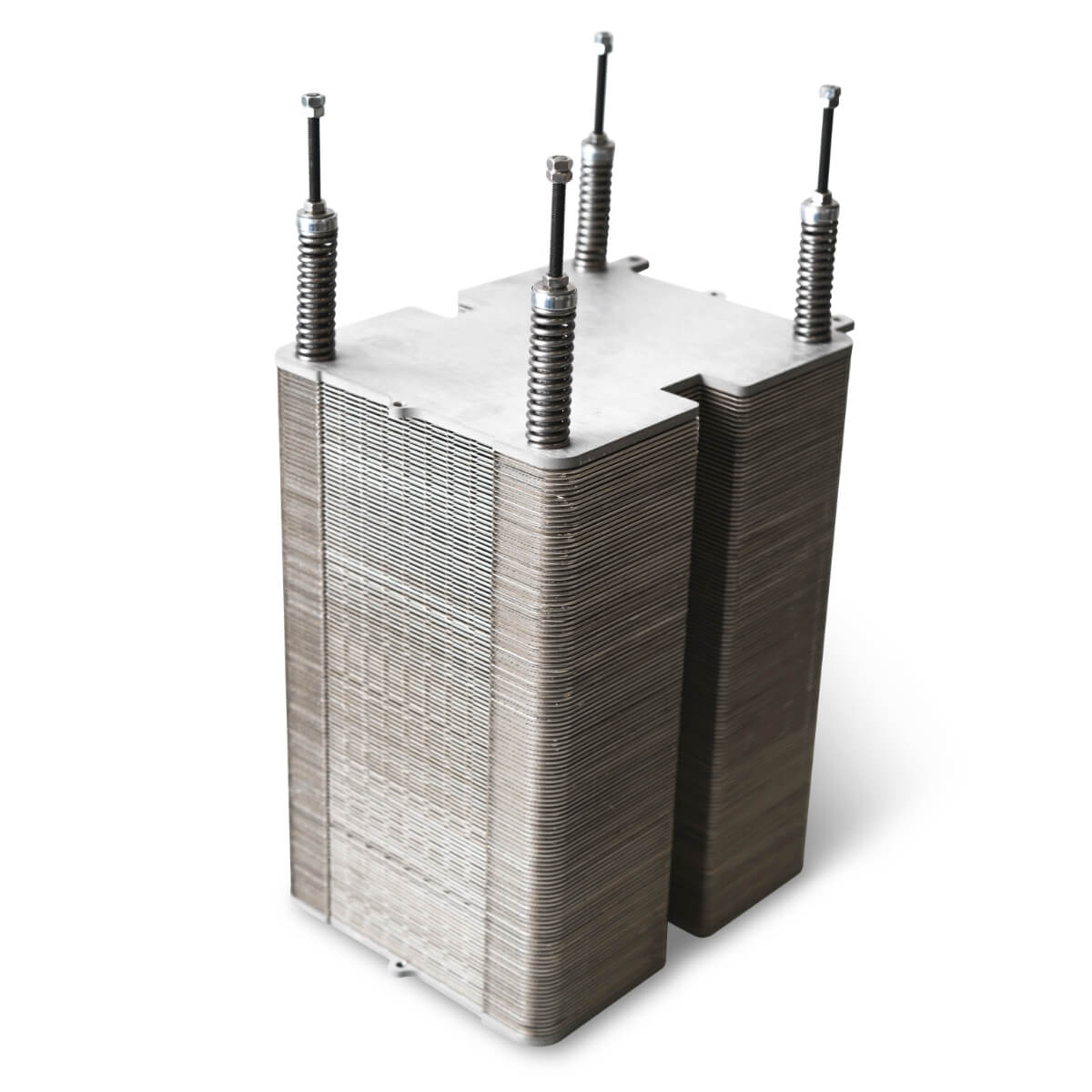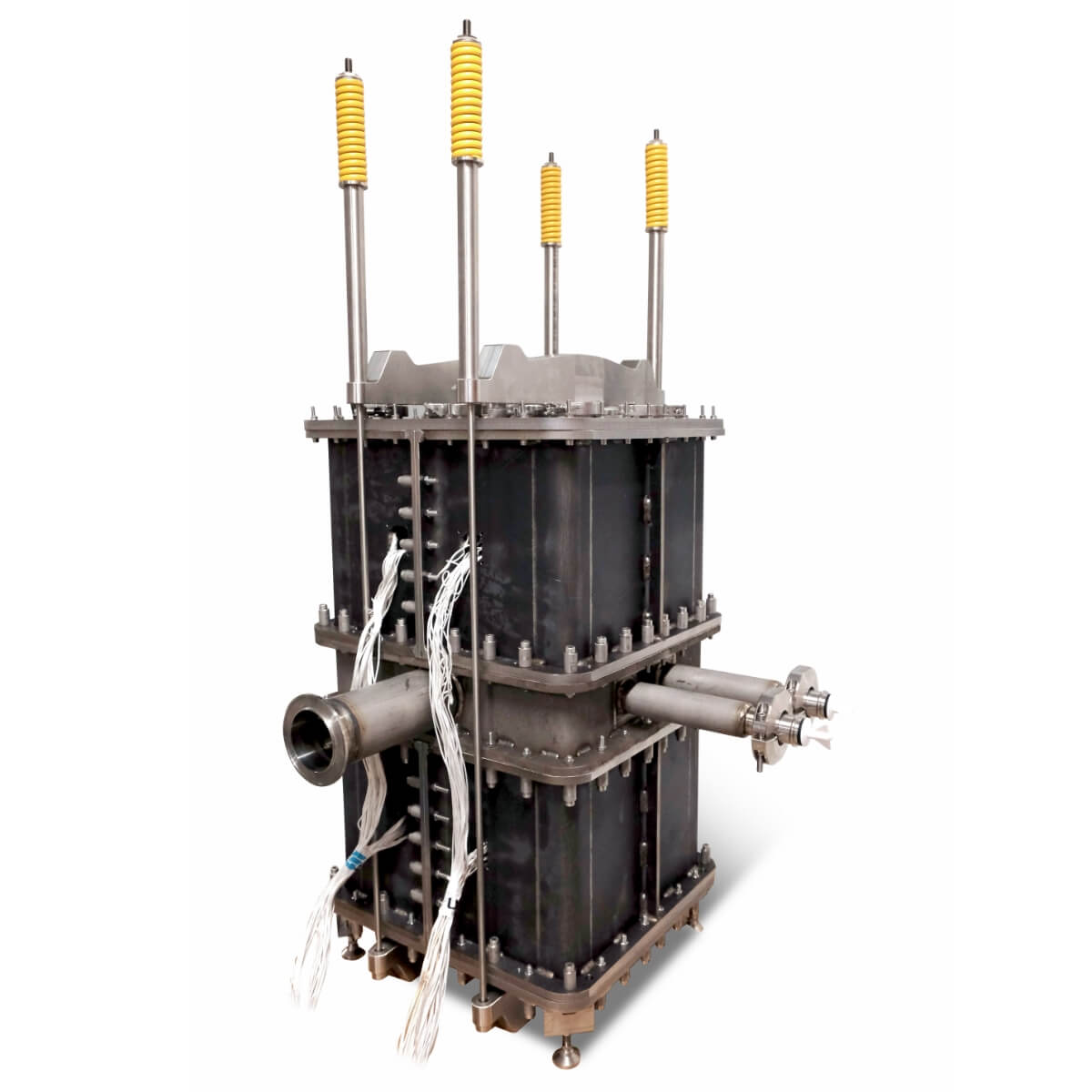No Grid? No Problem. WattAnyWhere Powers Supermarkets and EV Chargers with Ethanol-Based Fuel Cells
In the race for cleaner energy and electrification, there’s a growing tension between visionary ambitions and the limitations of current infrastructure. EV charging is booming. Data centers are multiplying. Grid capacity? Not so much. That’s the gap WattAnyWhere is stepping into, and they’re doing it with a unique blend of Swiss-French innovation, fuel cell tech, and good old, time-tested ethanol.
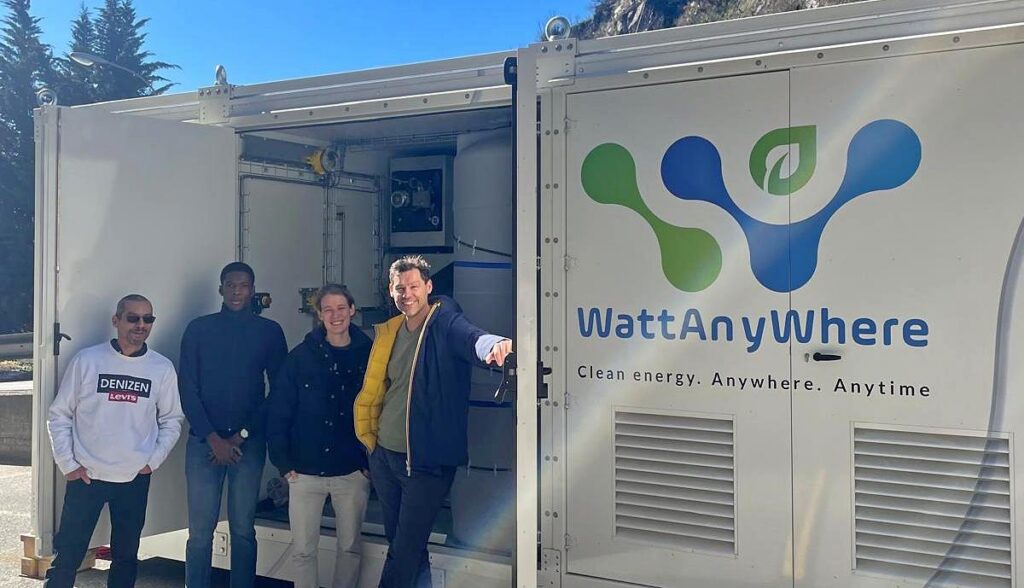
“Like all good stories, WattAnyWhere started with a friendship. Two old classmates keeping in touch for years after their graduation. Then, a team of five was created, all with strong experience in different industries and countries, France, Switzerland, USA, China, interacting with customers and partners globally” says Alexandre Laybros, Co-Founder & CMO of WattAnyWhere, who started the firm with Didier Roux, Chairman & CEO, back in 2020.
Their answer is a sleek ethanol-to-electricity generator designed to replace diesel in places where grid access is limited or overburdened. Think remote EV charging stations, industrial sites, and other applications like retail where reliable, scalable power is needed immediately, not in three years. The system converts renewable ethanol into clean electricity using solid oxide fuel cell (SOFC) technology. This is a portable generator that emits no pollutants, makes hardly any noise, and doesn’t need a costly, months-long connection to the electric grid. Their mantra?
“We believe that renewable and clean energy should power our planet anywhere, anytime.”
Why Ethanol, Why Now?
Unlike traditional diesel generators, which emit NOx, SOx, and particulate matter, WattAnyWhere’s system is zero-emission at the point of use. “Ethanol is 100% renewable, produced from biomass waste, and already benefits from a global supply chain. It’s a low-cost, stable fuel that doesn’t require new infrastructure,” Laybros explains, adding that “[…] our system significantly reduces net CO2 emissions by avoiding the CO2 carried by the traditional fossil fuel supply chain.”
To turn ethanol into electricity, they chose Elcogen’s SOFC technology, an advanced fuel cell solution that doesn’t require pure hydrogen, and therefore sidesteps one of clean energy’s biggest bottlenecks. SOFCs can operate almost directly with ethanol, eliminating the need for currently complex hydrogen infrastructure. These fuel cells operate at high temperatures and are incredibly efficient, reaching electrical efficiencies of 60%, which is miles ahead of what diesel can offer.
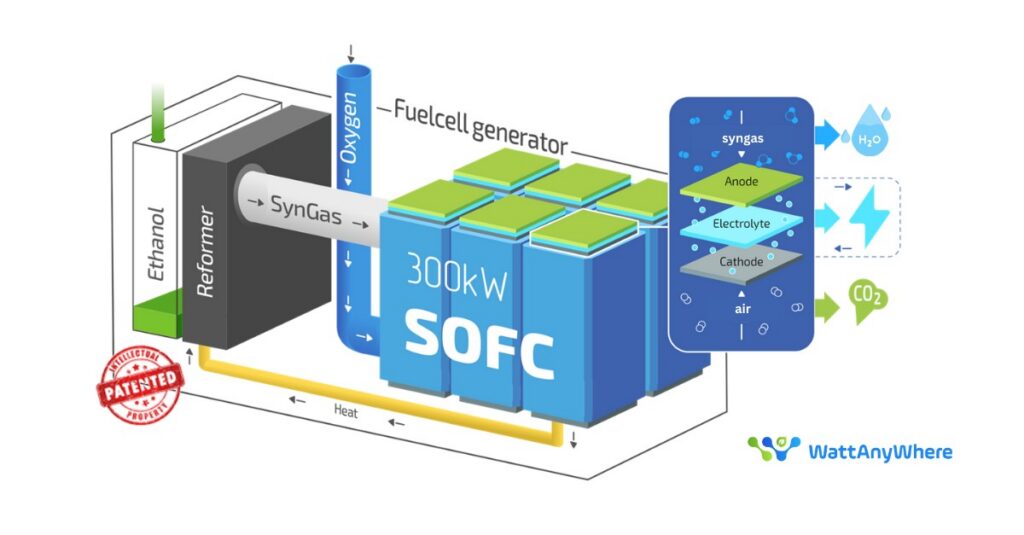
WattAnyWhere has built in features such as modular scalability, allowing you to easily adjust power output whether you need a few kW or several hundred, and energy storage, with a 30m³ ethanol tank capable of storing over 100MWh! The result is a solution that’s not only environmentally friendly but also highly practical.
“The key challenge was optimising ethanol reforming for SOFCs while maintaining system efficiency. We overcame this by developing a patented Power-On-Demand generator that maximises fuel utilisation. The opportunity lies in leveraging ethanol’s existing infrastructure and availability to rapidly deploy our technology at scale,” he explains.
A Real-World Test is Coming
“When we started the company, we launched our first study with the EPFL lab on a small prototype at less than a kW which allowed us to prove that ethanol could produce electricity with an SOFC,” he shares. They’ve since scaled the technology and are now preparing for a major milestone: field testing at a Shell motorway service station in France. It’s the kind of deployment that could prove transformative for highway EV charging, which currently suffers from slow grid connections and patchy service in remote locations.
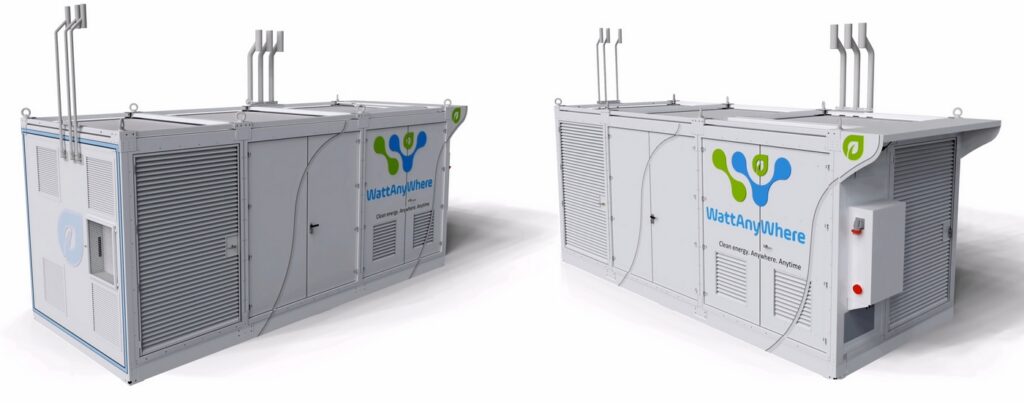
For WattAnyWhere, this is the next step in a journey that’s been equal parts engineering and learning, as Laybros confides, “During our prototype testing, we discovered that real-world energy demands often exceed lab simulations due to peak loads and fluctuations. This led us to integrate a battery boost system for added flexibility, allowing our generator to handle variable loads more efficiently. This experience reinforced the importance of real-world testing and adaptability in system design.”
What They’re Solving
WattAnyWhere is also teaming up with E. Leclerc Valdahon, part of one of France’s largest supermarket chains, to bring clean, off-grid power directly to the store. After proving the value of its ethanol-based generator tech, the partnership is moving into a live proof-of-concept phase, powering high-demand applications on-site to meet the store’s daily energy needs – including EV charging, refrigeration, and heating – without relying on the traditional grid. This partnership not only boosts E. Leclerc Valdahon’s energy independence and resilience but also supports its sustainability targets, marking a significant step toward decarbonising supermarket operations across the retail sector.
Retailers get backup power that’s silent and clean. EV charging providers can roll out stations without waiting years for grid upgrades. Data centers get off-grid energy security. For industries under pressure to decarbonise, but tethered to outdated infrastructure, WattAnyWhere offers a way to move forward… today.
“Many energy solutions focus solely on grid expansion and battery storage, overlooking the importance of decentralised, autonomous power generation,” Laybros says, adding “The rapid electrification of industries requires solutions that are deployable today without waiting for long-term infrastructure developments. WattAnyWhere addresses this challenge by providing a flexible, renewable energy solution that works independently or in synergy with existing grids”.
A Platform for Partnership
They’re not going at it alone. WattAnyWhere is working with Elcogen for its mass-produced SOFC stacks, and Metacon’s Greek division has provided the ethanol pre-reforming technology, Blocalps the container design, Watt & Well the power electronics design. It’s a tightly integrated ecosystem, and one that’s built to scale fast.
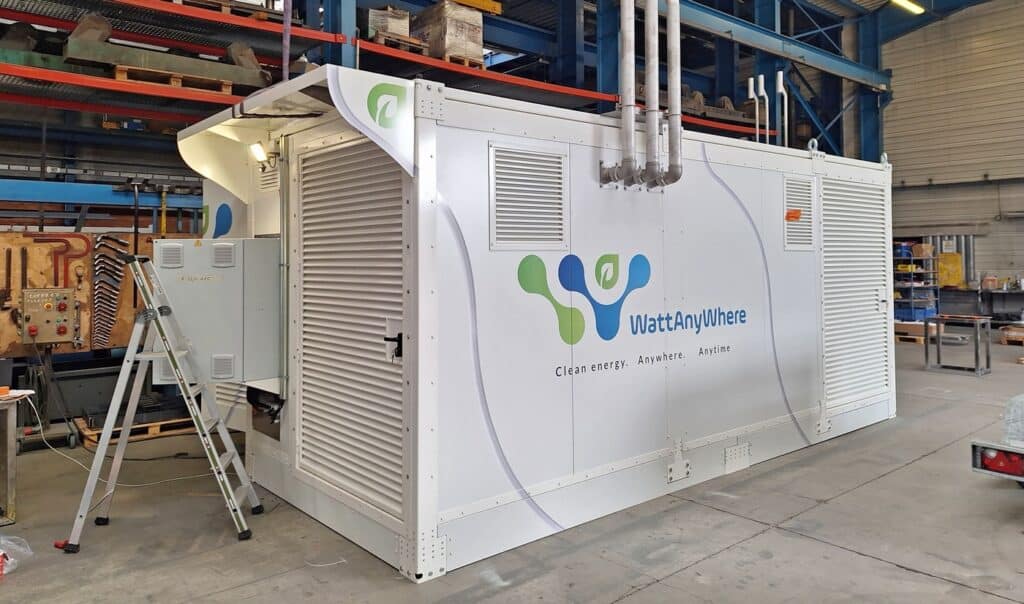
“We have been working with WattAnyWhere since the beginning, and it is one of the first customers I personally engaged with” said Elcogen CCO, Hanna Granö-Fabritius, adding “I was immediately intrigued by both the WAW team’s enthusiasm and the future possibilities for off-grid EV charging, thinking about remote areas in Finnish Lapland or in the French Alps or indeed crowded, century old middle-European cities facing challenges with grid capacity. With their EV charging systems rolled out on a large scale, I would feel much more confident in taking my EV for a road trip holiday in Central Europe!”
“When we set out to identify the most efficient and scalable fuel cell technology, solid oxide quickly emerged as the optimal solution. Elcogen stood out with a mature, mass-produced product – and their regional proximity played a key role in our decision to partner” said Olivier de Bruijn, CTO at WattAnyWhere, adding, “What really stands out this year is their dedication: they’ve followed every one of our tests and shown exceptional commitment to our success. Our collaboration has grown into a strong, trust-based relationship grounded in technical excellence, with both teams aligned in tackling today’s energy challenges through innovation.”
Looking ahead, the team is doubling down on innovation, energy storage integration, and forming new partnerships that will help bring their technology to more markets. “We’re inviting businesses and collaborators to join us in building a cleaner future,” Laybros says. “This isn’t just about one generator or one use case, it’s about redefining how clean energy gets to where it’s needed most.”
With commercialisation on the horizon and more real-world pilots just around the corner, WattAnyWhere’s progress is a surefire signal that clean, off-grid energy doesn’t have to be five years away… it can be right here, right now.
Watch this space.
Text: Laura Quinton | Photos: WattAnyWhere
